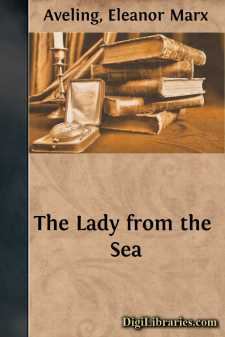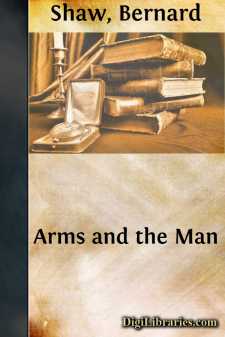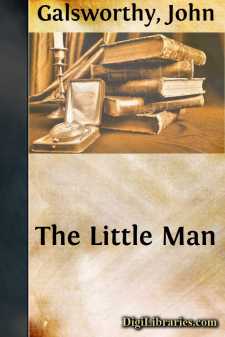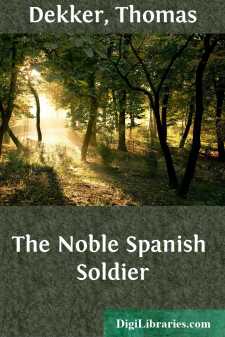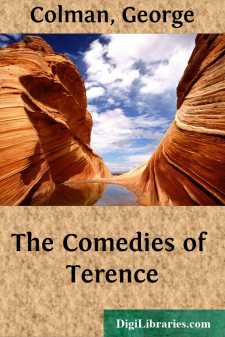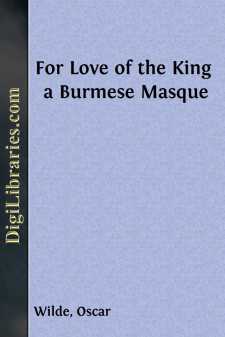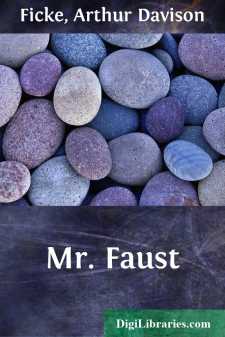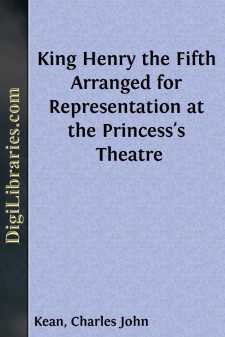Drama Books
Sort by:
THE LADY FROM THE SEA ACT I (SCENE.—DOCTOR WANGEL'S house, with a large verandah garden in front of and around the house. Under the verandah a flagstaff. In the garden an arbour, with table and chairs. Hedge, with small gate at the back. Beyond, a road along the seashore. An avenue of trees along the road. Between the trees are seen the fjord, high mountain ranges and peaks. A warm and...
more...
by:
Bernard Shaw
INTRODUCTION To the irreverent—and which of us will claim entire exemption from that comfortable classification?—there is something very amusing in the attitude of the orthodox criticism toward Bernard Shaw. He so obviously disregards all the canons and unities and other things which every well-bred dramatist is bound to respect that his work is really unworthy of serious criticism (orthodox)....
more...
by:
Clyde Fitch
ACT I A charming room in the Tillmans' house. The walls are white woodwork, framing in old tapestries of deep foliage design, with here and there a flaming flamingo; white furniture with old, green brocade cushions. The room is in the purest Louis XVI. The noon sunlight streams through a window on the left. On the opposite side is a door to the hall. At back double doors open into a corridor which...
more...
by:
John Galsworthy
SCENE I Afternoon, on the departure platform of an Austrian railwaystation. At several little tables outside the buffet personsare taking refreshment, served by a pale young waiter. On aseat against the wall of the buffet a woman of lowly station issitting beside two large bundles, on one of which she has placedher baby, swathed in a black shawl. WAITER. [Approaching a table whereat sit an English...
more...
by:
Thomas Dekker
INTRODUCTION THOMAS DEKKER Thomas Dekker is believed to have been born in London around 1572, but nothing is known for certain about his youth. He embarked on a career as a theatre writer early in his adult life, the first extant text of his work being 'Old Fortunatus' written around 1596, although there are plays connected with his name which were performed as early as 1594. The period from...
more...
by:
George Colman
PROLOGUE. The Bard, when first he gave his mind to write, Thought it his only business, that his Plays Should please the people: but it now falls out, He finds, much otherwise, and wastes, perforce, His time in writing Prologues; not to tell The argument, but to refute the slanders Broach’d by the malice of an older Bard. And mark what vices he is charg’d withal! Menander wrote the Andrian and...
more...
by:
Oscar Wilde
ACT I SCENE I The palace of the king of burmah. The scene is laid in the Hall of a Hundred Doors. In the distance can be seen the moat, the waiting elephants, and the peacocks promenading proudly in the blinding sunshine of late afternoon. The scene discovers king meng beng seated on a raised cushion sewn with rubies, under a canopy supported by four attendants, motionless as bronze figures. By...
more...
by:
Upton Sinclair
THE NATUREWOMAN ACT I [Scene shows a luxuriously furnished drawing-room. Double doors, centre, opening to hall and stairway. Grand piano at right, fireplace next to it, with large easy-chair in front. Centre table; windows left, and chairs.] [At rise: ETHEL standing by table; a beautiful but rather frail girl of sixteen; opening a package containing photograph in frame.] ETHEL. Oceana! Oceana! [She...
more...
INTRODUCTION Through all the work of Arthur Davison Ficke runs a note of bigness that compels attention even when one feels that he is still groping both for form and thought. In "Mr. Faust" this note has assumed commanding proportions, while at the same time the uncertainty manifest in some of the earlier work has almost wholly disappeared. Intellectually as well as artistically, this play...
more...
PREFACE. In the selection of my last Shakespearean revival at the Princess’s Theatre, I have been actuated by a desire to present some of the finest poetry of our great dramatic master, interwoven with a subject illustrating a most memorable era in English history. No play appears to be better adapted for this two-fold purpose than that which treats of Shakespeare’s favorite hero, and England’s...
more...


